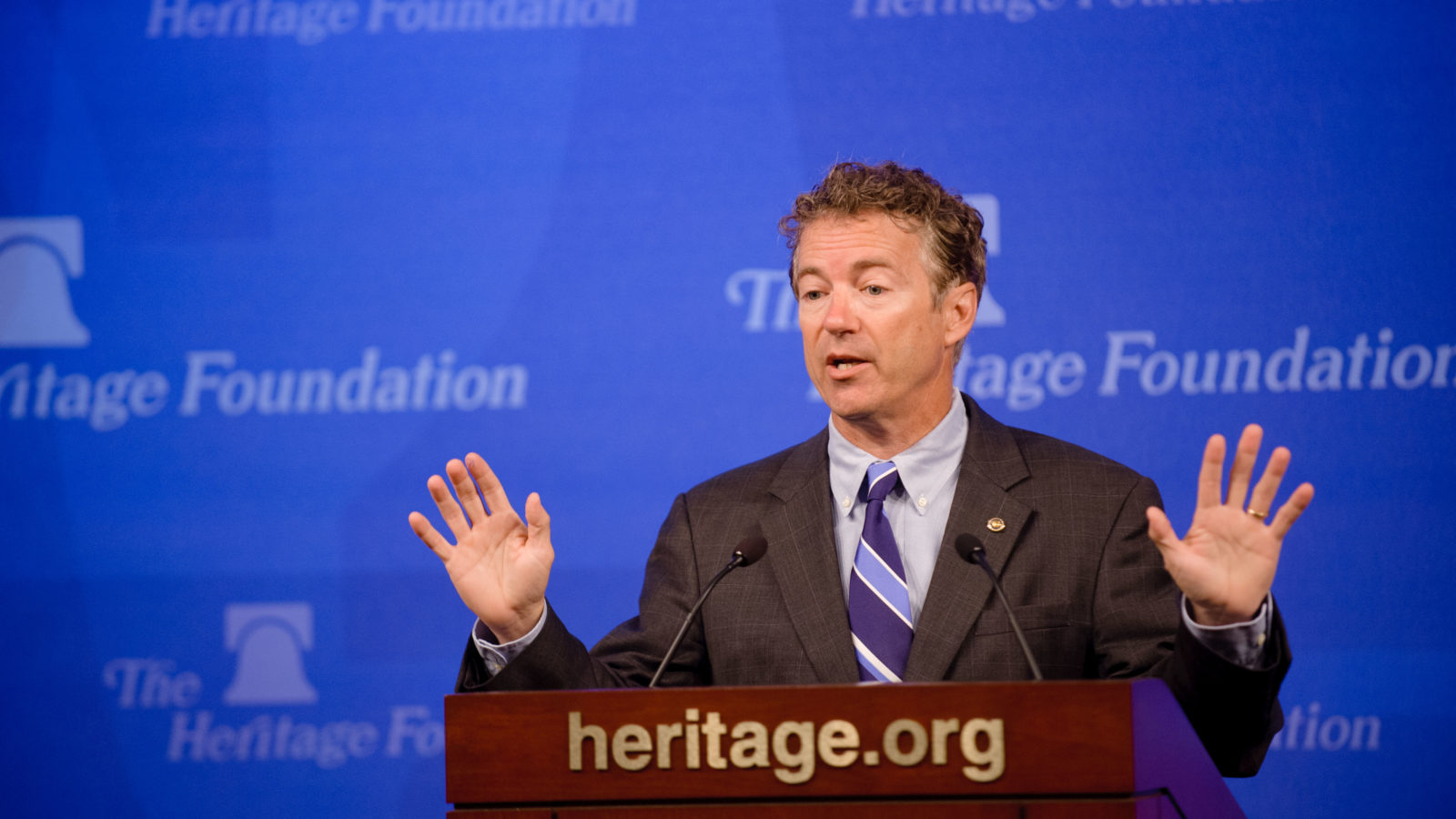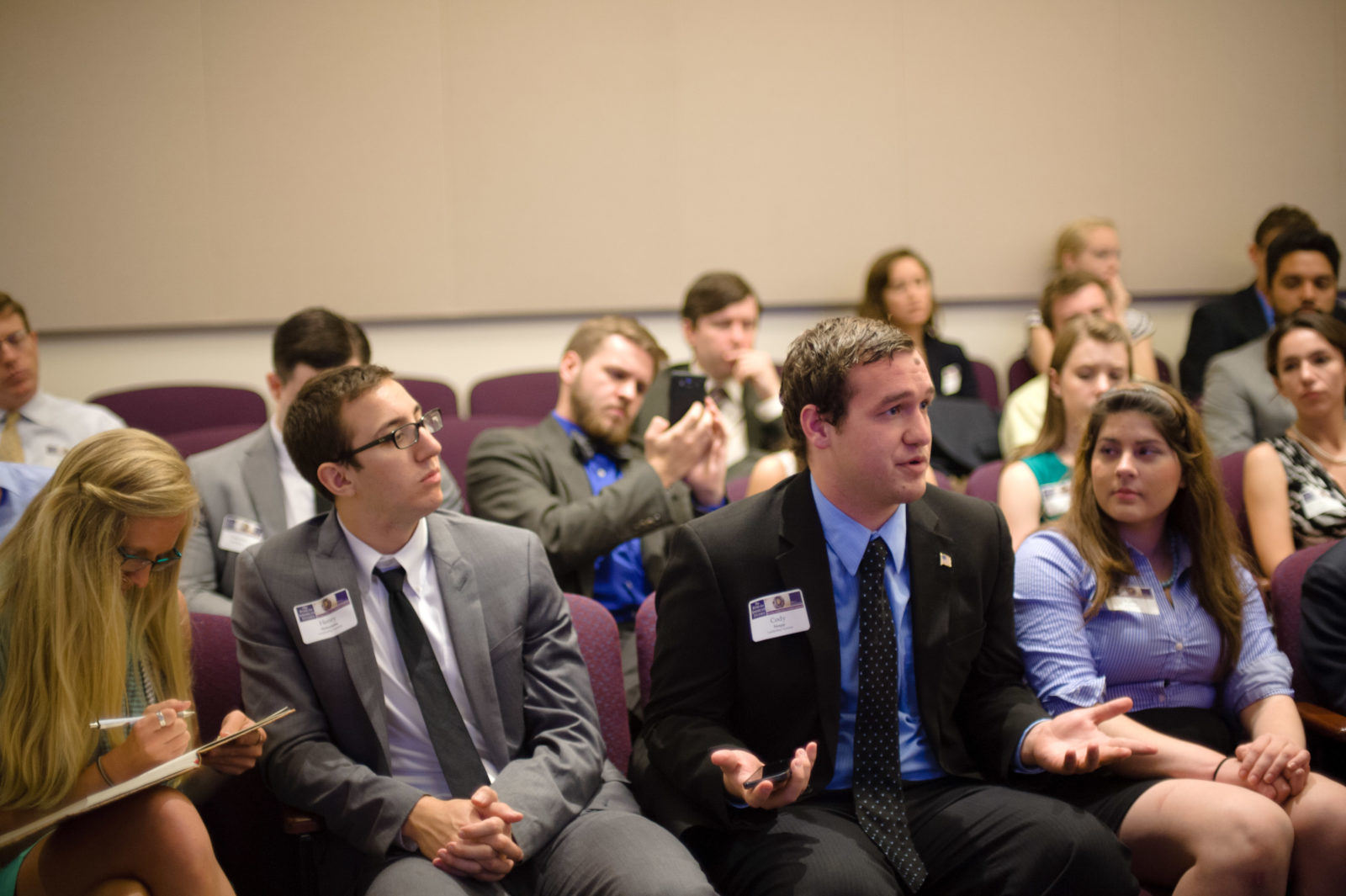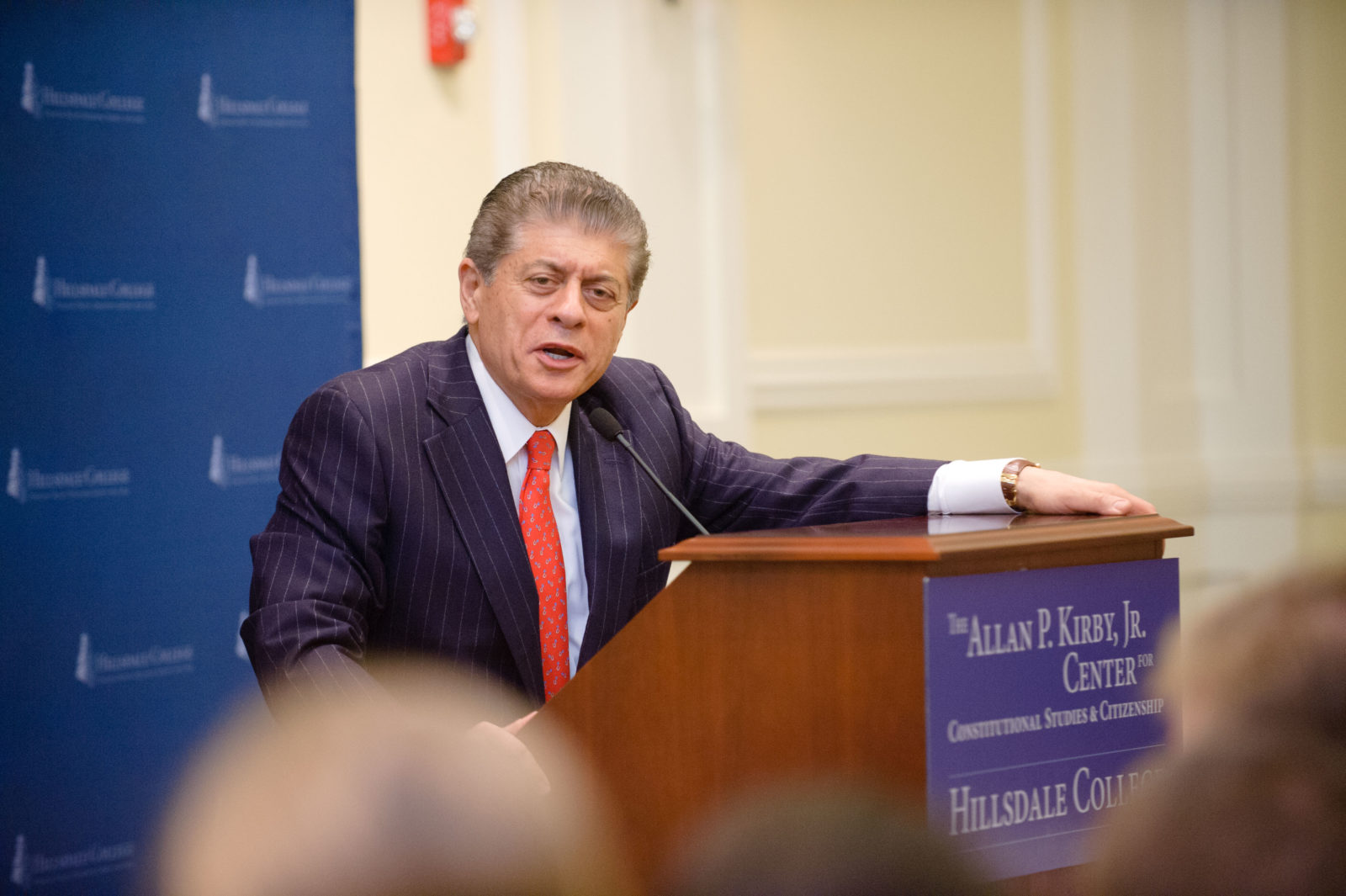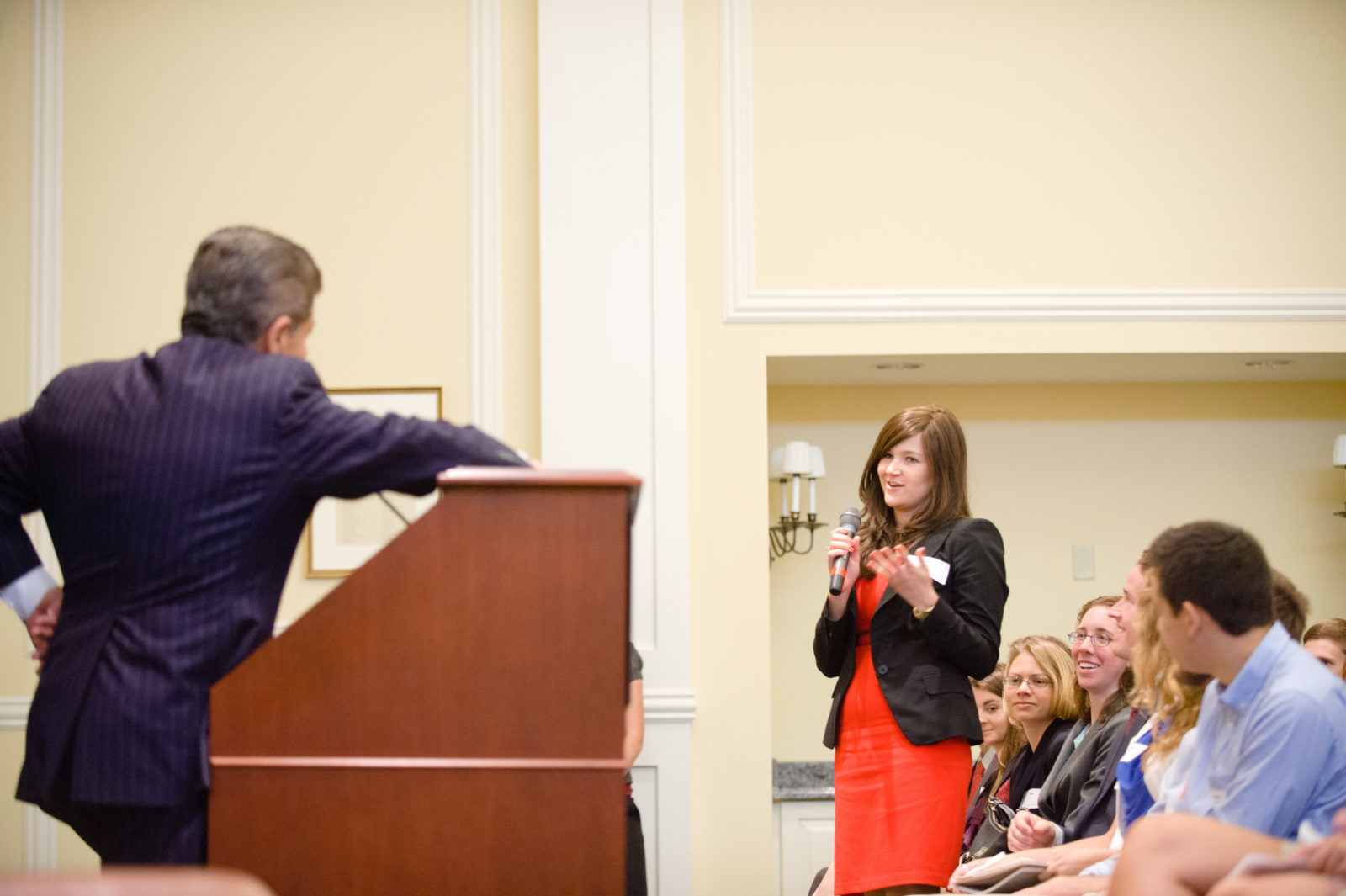
For the second summer in row, TFAS partnered with the office of Sen. Rand Paul to host the Young Leaders for Freedom lecture series. Sen. Paul delivered the first address of the series and was followed up by Judge Andrew Napolitano of Fox News and financial commentator Peter Schiff.
TFAS students and other interns from congressional offices were encouraged to participate in the popular series focused on current policy and issues affecting the nation’s youth.
Abby Meyers (IPJ 2013), a student participating in the Institute on Political Journalism, called the series a stand out event of the summer.
Peter Schiff, CEO and chief global strategist of Euro Pacific Capital Inc., made an especially lasting impression on Meyers with his views on the economy. “The way he translated [economics] to young people was really helpful,” she said. “He made everything very clear.”
Students interning with TFAS through the Koch Internship Program were able to attend the first two lectures in the series. Below are their first hand accounts of Sen. Paul and Judge Napolitano’s lectures:
SEN. RAND PAUL TALKS PRIVACY AND BASIC RIGHTS DURING CAPITOL HILL INTERN LECTURE SERIES

Most weekdays around noon, people in Washington are hitting their mid-day slump, the inevitable lull before lunchtime. But on June 19 at the Heritage Foundation’s Allison Auditorium, hundreds of young interns are bustling with excitement. That’s because Roger Ream, president of The Fund for American Studies (TFAS), is introducing Sen. Rand Paul, the junior senator from Kentucky.
Since entering the U.S. Senate, Rand Paul has followed in the footsteps of his father, former congressman and presidential candidate Ron Paul, in presenting his vision of libertarianism to the American public. At the request of TFAS, he spoke to students on the subject of citizens’ basic rights and liberties, addressing the current NSA scandal, the right to privacy and the fourth amendment.
After the senator’s remarks, he answered questions from students. This was no normal Q&A, however, as the senator threw out pre-submitted questions, and instead solicited face-to-face inquiries on the fourth amendment.
Paul concluded his speech with what he called two arguments for freedom: the Efficiency Argument and the Liberty Argument. Paul said the Efficiency Argument embodied the words of Benjamin Franklin in that “nobody spends somebody else’s money as wisely as he does his own.” The Liberty Argument reflected Senator Paul’s view that government is a “necessary evil. Evil in the sense that you have to give up … some of your freedom.”

JUDGE NAPOLITANO ENCOURAGES CAPITOL HILL INTERNS TO STAND UP FOR PRIVACY RIGHTS AND TO DEFEND THE CONSTITUTION
July 18 marked the second lecture in the Young Leaders for Freedom lecture series featuring Judge Andrew Napolitano. Rand Paul provided the introduction for the judge, highlighting him as a constitutional scholar and admired television personality.
Napolitano began his speech by recounting humorous stories from his time in the courtroom. He then diverged into a compelling speech about the formation of the constitution, particularly the fourth amendment, and the Founding Fathers’ rationale behind the amendment, before discussing where it stands in America today. He said that the constitution, particularly the fourth amendment, existed in the terms written by the founding fathers, in order to limit the power of the government, fearful of the tyranny they had escaped.

He stressed how our “inalienable” rights to life, liberty and property, essentially the natural law, are being frequently violated by the unconstitutional activities of the NSA. He explained how many of these activities are done without the knowledge of the general public due to their classified and secretive nature. He revealed that the Patriot Act was so secretive that many of the congressmen who passed the law were ignorant to what it entailed. He urged the student’s to reconsider the government’s role and asked them, “Do we work for the government or does the government work for us?”
Many students seemed frustrated by the news, however, all wanted to know how they could take action. He believes it is necessary that the rising generations to stand up for their right to privacy and encourage their representatives to defend the constitution they swore to stand before.

